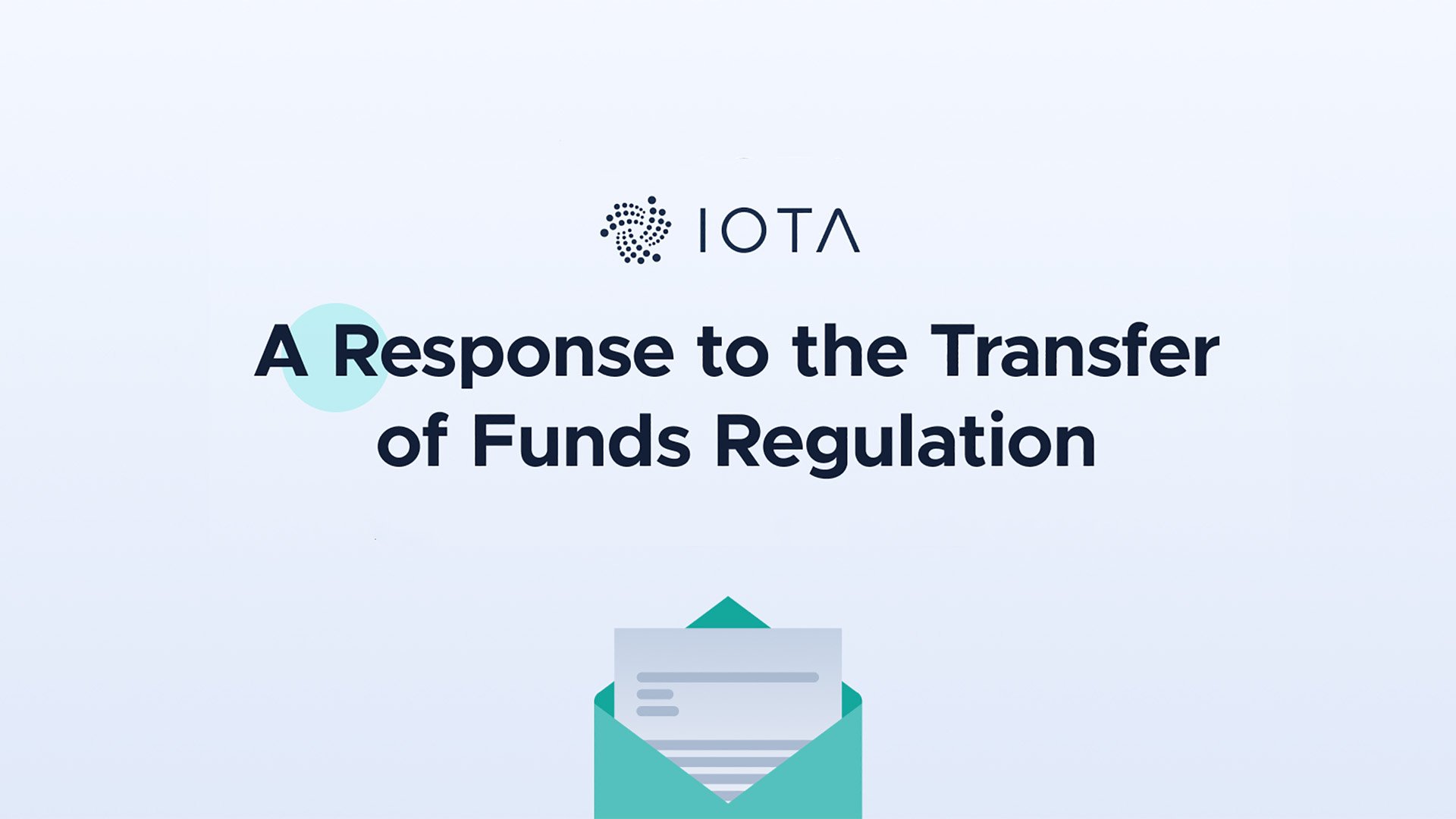
When it comes to both money laundering and the machine economy, the European Parliament and the Council of the European Union have lost the plot.
Let me explain. On April 28, meetings among the three governing bodies began over the Transfer of Funds Regulation (TOFR), which aims to combat money laundering, terrorist cell funding, and other financial crimes – as admirable a cause as any, and certainly worth addressing legislatively. There’s no debating the merits of the measure. There is, however, some question as to the method.
The TOFR is set to enact strict legislation concerning unhosted wallets, which are digital wallets that individuals use on their own devices. There’s no central location or intermediary that can easily verify transactions made with unhosted wallets. Hosted wallets, by comparison, are offered by crypto service providers or exchanges like Binance or Coinbase. In simplest terms, it’s the difference between having cash in your wallet and money in an account with your bank.
The wrong chopping block
It might seem logical to assume that money stashed outside the purview of financial and legal institutions is a breeding ground for everything the TOFR aims to eliminate. The problem with the approach the TOFR takes, however, is this: in attempting to stymy unhosted wallets, it also crushes the use and development of services enabled by unhosted wallets that are anything but criminal. Unhosted wallets built into cars, for instance, could automatically report potholes and enable seamless payments at toll booths or parking meters, making life on the road safer and easier. That’s not nefarious by any standard.
Unhosted wallets and their ability to interact with crypto asset service providers (known as CASPs) are essential to the very fabric of the machine economy. This legislation would require CASPs to verify both the originator and beneficiary of each transaction made with an unhosted wallet. Unhosted wallets, however, can’t constitute a legally obliged entity precisely because they’re neither a natural nor a legal person. This makes verification operationally impossible, particularly for devices that comprise the Internet of Things.
The combination of an unmanageable administrative burden plus limited operational utility for national competent authorities makes for a totally unworkable situation. By making payments between machines and CASPs slow and expensive, the current position and legislative draft, if passed, will actively undermine the machine economy space. The necessary and innovative development of use cases will grind to a halt.
One step forward, two steps back
The E.U. has a vested interest in the development of the machine economy purely because Europe will benefit from an increasingly sophisticated and usable machine economy. The number of connected devices is estimated to reach 75 billion by 2025, and no small portion of those devices will be used here in Europe. The benefits aren’t strictly technical or financial. Smart meters that monitor, buy, and sell renewable energy on behalf of their consumer-owners would contribute broadly to the EU’s climate goals, for instance – but such meters require unhosted wallets to work and interact effectively. It’s also a matter of self-preservation. Only a fraction of today's society and economy deals with amounts of value that allow for manual processing, and this fraction is only going to continue shrinking. Taking a sledgehammer to automation development will make Europe less efficient and less industrious in short order.
Beyond how Europe stands to benefit, this level of intense crackdown on unhosted wallets also effectively hands every major tech industry powerhouse off the continent the competitive advantage with machine economy developments. The EU is repeating old mistakes, having previously hindered innovation in biotech, AI, cloud computing, and a multitude of other technologies through early and harsh regulation. Countries without such regulations and, in certain cases, strong federal support, subsequently pulled ahead.
The strangest part is that the European Commission in particular has invested effort and financial backing into decentralised technology and machine economy-related projects, such as the European Blockchain Services Infrastructure (EBSI), which aims to leverage blockchains to create trustworthy and cross-border services across business- and public-facing administrations and ecosystems. This crackdown threatens to halt the growing momentum.
A different approach
Leaving everything unregulated is not a good strategy, nor is kicking the legs out from under the machine economy. Money laundering must be addressed, as should crypto-assets’ role therein. I suggest a three-pronged approach that doesn’t hamstring the essential development of the machine economy.
First, bring transactions between unhosted and hosted wallets under the scope of existing Anti-Money Laundering/Combating the Financing of Terrorism (AML/CFT) rules – with the crucial caveat that unhosted wallets are declared not-obliged entities. Instead, CASPs should be the entities on which this fight hinges, where the means to scrutinise crypto transactions in relation to their own customers already exist.
Next, codify that micropayments up to 1 euro run free of risk assessment and verification.
Most importantly, leverage distributed ledger technology’s ability to create publicly visible transaction records and support the development of decentralised financial applications. This technology exists, and it should be not only at the table but at the forefront of the discussion. The technological fight against money laundering needs to evolve as quickly as the tools being used to launder the money in the first place. And this all needs to be done with the understanding that none of this will be sufficient if machines take the fall. In other words, machines don’t launder money. People do.
It would be a mistake to hand over the competitive advantage to the rest of the world while bringing development that stands to benefit European societies and economies to a grinding halt. It’s not too late to not make this mistake. We can do better than this. If we don’t, the rest of the world will.



Would you like to write the first comment?
Login to post comments